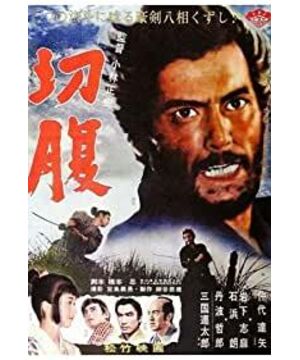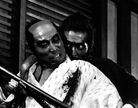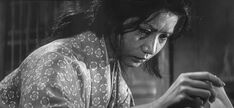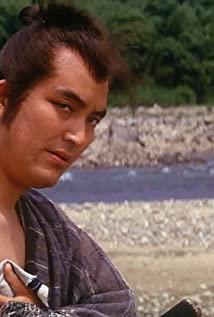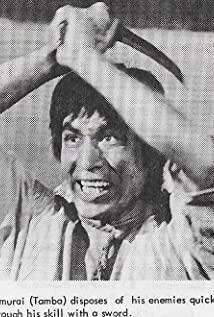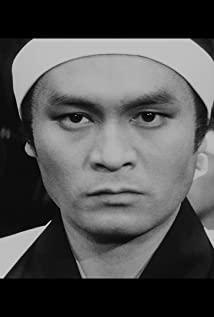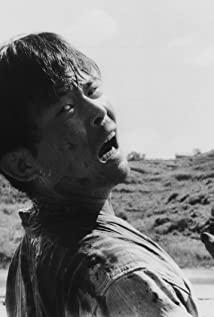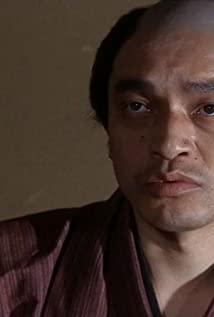In all fairness, the after-view of "Cut the Belly" is not easy to write, because I don't know where to start. Just had to start from the beginning.
A pair of simple and simple armor that symbolizes the supreme glory of the Ii family comes into view. Then the narration of the "jueshu" record sounded. The still-motion shot of Jingyi's family is gazing at the flowers, and the soundtrack of the pipa (the author is not sure) is noisy and cutting, creating a solemn and solemn atmosphere from the beginning.
Then the film begins the narration of Naiyun Hanshiro, a poor ronin who asked to borrow a land to pierce his belly because of his poverty, and went to Ii's house to borrow a land to pierce his belly. And the old Yu family of the Jingyi family seemed to think that he was trying to extort money, so he told him the story of another ronin, Qian Qianyan, begging for a daughter.
In Yu Jia Lao's story, Qian Qianyan Qiu's daughter is a down-and-out ronin. He took the initiative to request to cut his abdomen on the ground, but when he really wanted to cut his abdomen, he wanted to be greedy for life and fear death, and wanted to run away.
Even at the juncture of incision, Qian Qianyan begged hard for her daughter, begging for a day or two of grace. However, the retainer of the Jingyi family was righteous, and the beggar had to cut his abdomen with his poor and pitiful bamboo knife that insulted the samurai; when he was in so much pain that he wanted to die, his deputy refused to complete the ceremony, so the beggar bit his tongue and committed suicide.
As the film continues to develop, Hanshiro said before his belly cut that he wanted to tell his own story, hoping that listeners can find some precious wisdom in it, because "my fate today may be someone else's tomorrow". Hanshiro eloquently talked about the Qian Qianyan who he knew begging for a daughter.
Qian Qianyan lost his father when he was fifteen years old. The begger adores Hanshiro's daughter Miho, but he considers himself poor and unworthy of Miho. But Hanshiro firmly married his daughter to him. When he heard that a poor ronin was actually blackmailing the nobles under the guise of cutting his abdomen, he expressed disdain. However, when Jin Wu was terminally ill, when Mei Bao was sick and had nothing to sell at home, and when his father-in-law, who still had a samurai sword, was helpless, this man called "Qianqianyan Begging for a Girl" chose to go to Jingyi's house to borrow the ground to cut his abdomen. Finally, bite your tongue and commit suicide
From the interlude of Yujiao to the flashback of Hanshiro, the story becomes complicated, quite suspenseful, and even has the feeling of "Rashomon". In the second half of the film, the line of Qian Qianyan begging for a daughter shows its true face. The truth of the story is in strong contrast with the narrative of the old man of the family, which is extremely shocking!
It was such a ronin who used a bamboo sword and was greedy for life and feared death. He lost his dignity as a samurai, lost his faith, and came to Jingyi's house, but Jingyi's family was "too troublesome to ask for reasons." For the sake of reputation and unnecessary trouble, Jingyi The family should be decisive and must let Qian Qianyan beg her daughter to die!
That's how the Ii family, who demanded the dignity of the samurai, decided to hide the truth about the death of Hanshiro, his retainer. The so-called Bushido spirit is only superficial
Seeing this, the author can't help but sigh. Hanshiro experiences the grief of losing three of his loved ones, and his belief in Bushido is destroyed by the ruthlessness of the caste. The last Jedi rebellion also disappeared in the three eyes and two words of those in power.
Hanshiro, who had finished telling the story of his life, was probably heartbroken. He lost his livelihood, his old friend passed away, God gave him a lovely grandson but ruthlessly took him away, and his daughter and son-in-law also passed away one after another. The warrior who is not confused should be very puzzled, why is fate so unfair?
Nanyun Hanshiro once said, "My fate today may be the fate of others tomorrow." Yes, maybe one day the Jingyi family will also be weakened, and its retainers will become poor ronin, who can guarantee that the tragedy will not be repeated?
Then talk about a few shots that impressed me.
In this scene, Hanshiro's love for his grandson and the family's harmony and happiness were captured extremely well! The warmth conveyed from the camera and action is beyond words. But tragedy is to destroy good things for you to see.
The poor ronin can do nothing.
Also, the battle between Hanshiro and another retainer was very freehand and elegant.
The change of wind direction means the change of host and guest, strength and weakness
There are also close-ups of Yu Jia Lao's face, shots of distance comparison of characters, etc. But it will not be posted here. I hope you can find more good shots in the movie yourself.
Another: The two appearances of Jue Shu, the neatness and scattering of the armor make the whole story very neat. Flashbacks and interludes make the structure of the story more complex and suspenseful. The smooth lens switching is not at all sloppy. There is also the right soundtrack, all of which add points to the movie!
In the end, the author still wants to apologize, because the author's level is limited, and I chose to retell the plot to write the aftermath. I still hope that everyone can watch the movie in person and feel the charm of such an excellent movie.
Finally, I want to make a crazy call for the screenwriter-Hashimoto Shinobu, the male protagonist-Nakadai Tatsuya!!!
View more about Hara-Kiri reviews


